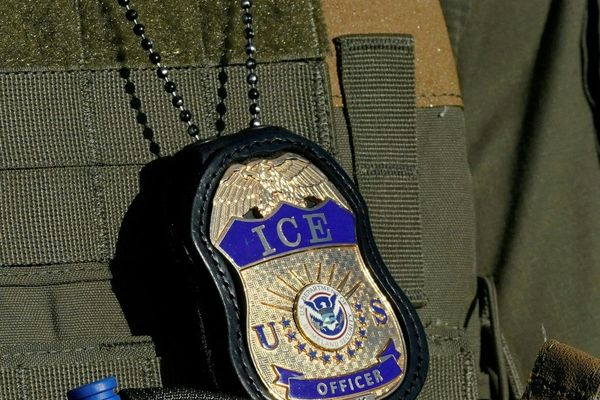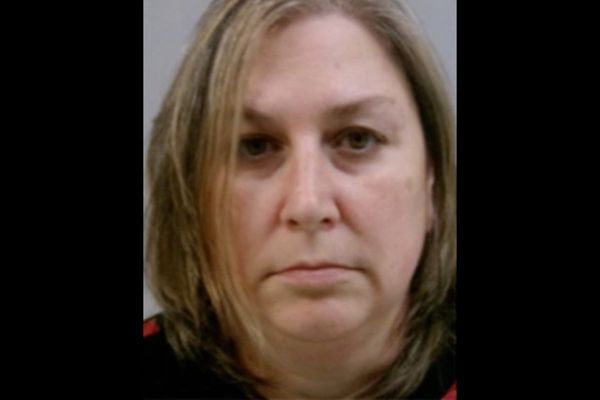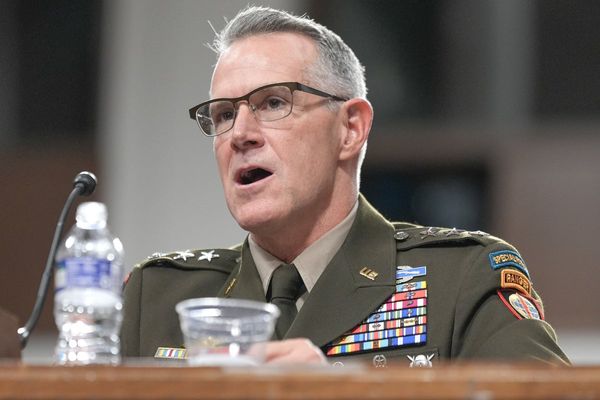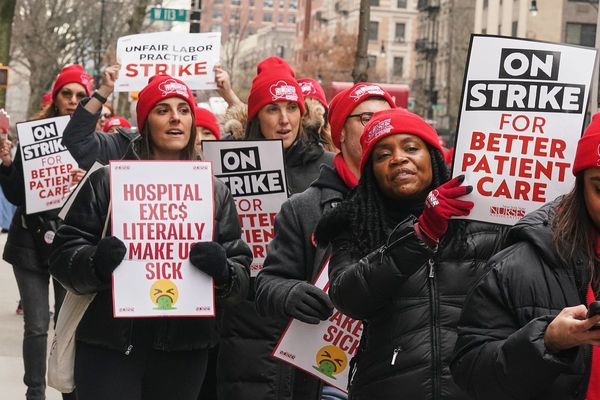WASHINGTON — President Joe Biden and leaders of NATO allies agreed to double the organization's troop presence in Eastern Europe Thursday during a flurry of wartime summitry in Brussels, an effort to keep the alliance united in its effort to isolate and punish Russia for its invasion of Ukraine.
The White House also announced new sanctions against more than 400 Russian elites, Duma members and defense companies — one more turn of the screw in the West's economic pressure campaign against Moscow. The Group of Seven, which joined in the new sanctions, disclosed initiatives aimed at cracking down on efforts by Russia to evade sanctions and preventing its Central Bank from using gold reserves to shore up its sagging economy.
The U.S. also plans to accept 100,000 Ukrainian refugees into the country and to donate $1 billion to help European nations flooded with Ukrainians fleeing the war, the White House confirmed.
The extraordinary gathering of leaders, planned in just days, was convened largely to send a signal of resolve to Russian President Vladimir Putin while ensuring NATO allies remain on the same page as they plot additional measures against Moscow and prepare for scenarios that could draw them deeper into the conflict.
"We are determined to continue to impose consequences on Russia to bring about an end to this brutal war," NATO Secretary-General Jens Stoltenberg said as he opened the meeting, expressing support for Ukraine, recognizing "the great courage" of its people and of those inside Russia "who are bravely speaking out against the war."
"We hear the voices," he said. "They matter."
NATO leaders began a closed session Thursday after posing for a "family photo," ratifying the plan Stoltenberg first outlined Wednesday to double the number of battle groups in Eastern Europe. That will result in deploying more forces to Bulgaria, Hungary, Romania and Slovakia. The alliance had already doubled its initial troop presence on its eastern flank since Russia launched its invasion of Ukraine on Feb, 24.
"Today's establishment of four new battle groups in Slovakia, Romania, Bulgaria, and Hungary is a strong signal that we will collectively defend and protect every inch of NATO territory," Biden said in a statement.
There are 100,000 U.S. troops stationed in Europe, roughly 20,000 more than were there before Russia attacked.
Volodymyr Zelenskyy, Ukraine's president, addressed the summit via video, asking the alliance to step up military assistance to help his country fight back.
"The world is waiting. Ukraine is waiting. For real action, for real security guarantees, from those whose word is to be trusted and whose actions can really preserve peace," Zelenskyy said. "We need peace now. The response is yours."
Zelenskyy has made similar requests in speeches to lawmakers in Washington, Berlin, Ottawa and other Western capitals in recent days.
In a statement following the NATO leaders meeting, Biden touted the $1 billion in new security assistance for Ukraine, which included anti-aircraft systems, anti-tank missiles, drones, heavy weaponry and ammunition. He suggested that other countries would be sending additional aid. "I welcome the steps by many other Allies to provide defensive support to Ukraine," he said. "Together, we are committed to identifying additional equipment, including air defense systems, to help Ukraine."
Biden arrived in Brussels on Wednesday evening and was also participating in meetings Thursday afternoon with the G-7 leaders and the European Commission. He will hold a news conference before traveling to Poland on Friday.
The discussions among leaders, Sullivan said, would include planning for numerous "potential contingencies," including what to do in the event that Russia launches cyberattacks against the U.S. or other NATO countries or uses chemical or biological weapons in Ukraine.
Under NATO's Article V, an attack against one member nation is considered an attack against all. Since Russia began its war in Ukraine, NATO members have imposed severe economic sanctions, taken steps to ban or limit imports of Russian energy and contributed billions in defense aid to Ukraine. They are attempting to punish Moscow as severely as possible while steering clear of any direct military engagement that Putin could use to justify expanding the conflict into NATO territory.
Putin, allies fear, may seek to escalate the conflict out of frustration in his brazen campaign's lack of progress. Russian officials seemed to have believed the invasion would take just days but instead has bogged down as the war enters its second month. Perhaps as many as 10,000 Russian troops have been killed by Ukraine's military and resistance fighters, which Wednesday halted the eastern advance on Kyiv and pushed back Russian troops several miles.
With Russia struggling to conquer Ukrainian territory, Putin has increasingly unleashed artillery, bombs and missiles against civilian targets, prompting Secretary of State Antony J. Blinken on Wednesday to formally declare that the U.S. has concluded Russia's actions against Ukraine constitute war crimes.
The crisis in Ukraine has taken Biden's own chosen frame for his presidency — a historic confrontation pitting democracies versus autocracies — beyond the theoretical. It has also served as the impetus for reinvigorating a transatlantic alliance that, some seven decades after World War II, had seemed to be losing its focus and shared purpose.
But Stephen Sestanovich, an expert on Russia at the Council on Foreign Relations, said Biden will have to ensure NATO members enact more sanctions and take other concrete steps to punish Russia if he wants the meeting to be considered an operational success.
It remains unclear how much further some European countries are willing to go. While Germany, for example, has committed to increasing defense spending and halted the certification of the Nord Stream 2 gas pipeline from Russia to its Baltic coast, it continues to rely on Russian energy, as do many other European countries.
"This war is accelerating Europe's awakening to the real threat posed by Russia," said Alexandra de Hoop Scheffer, transatlantic security research director for the German Marshall Fund.
"But it seems that the European Union has pretty much reached the limit of what it actually can do because if we really wanted to act seriously and cause pain to Russia, it would involve limiting our imports of gas and oil," Scheffer said, adding that some countries have declared they cannot take such action.
Calling the coming days "a tipping-point phase of conflict" because Russia may be encountering difficulties on the ground while Ukraine is fighting hard but desperate for more aid, Scheffer said NATO countries needed to "accelerate our support before it's too late. It's not a question of months or weeks, it's a question of days."







